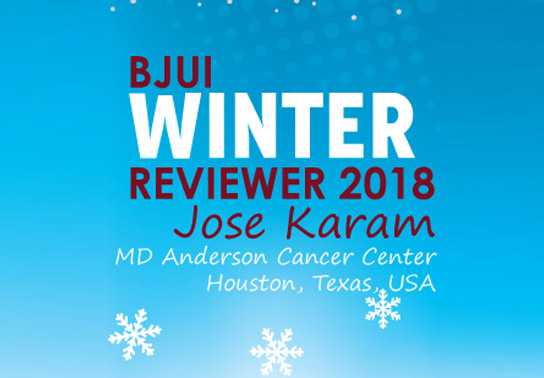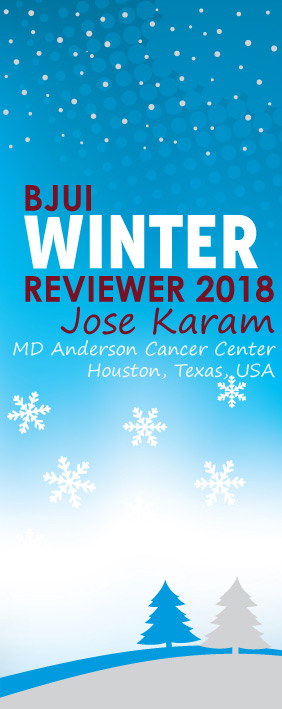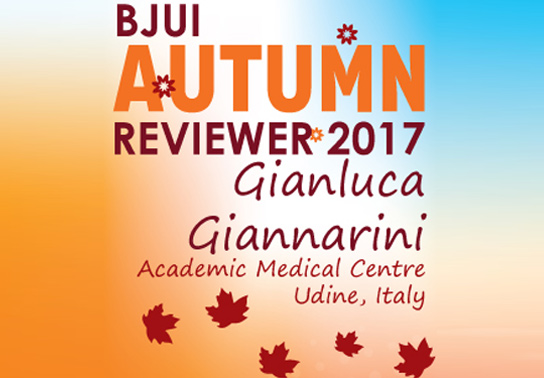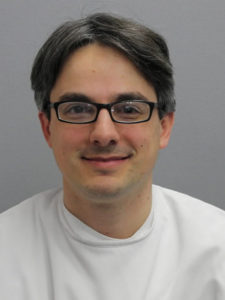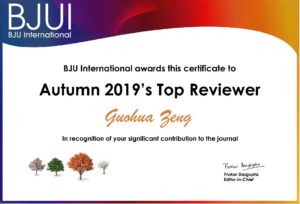 This month, BJUI continues the Four Seasons Peer Reviewer Award recognising the hard work and dedication of our peer reviewers. Each quarter the Editor and Editorial Team select an individual peer reviewer whose reviews over the last 3 months have stood out for their quality and timeliness.
This month, BJUI continues the Four Seasons Peer Reviewer Award recognising the hard work and dedication of our peer reviewers. Each quarter the Editor and Editorial Team select an individual peer reviewer whose reviews over the last 3 months have stood out for their quality and timeliness.
The Autumn Crown goes to Prof. Guohua Zeng.

Prof. Zeng is Vice-director of the First Affiliated Hospital of Guangzhou Medical University, Vice-Chair of the Urolithiasis section of CUA, President of Guangdong Provincial Urological Association, Co-chairman and Secretary General of International Alliance of Urolithiasis (IAU) and Director of the Endourology Society Certified Fellowship Program. He specialises in endourology and has finished more than 15000 endourological procedures including all kinds of PCNLs, rigid URS and RIRS procedures and Uro-laparoscopic procedures.
Prof. Zeng and his colleagues created a unique mini-PCNL technique, namely Chinese Mini-PCNL. More than 32000 Chinese Mini-PCNLs surgeries have been performed by Prof. Zeng and his team with good clinical outcomes. He also invented a new minimally invasive technique in the treatment of middle size renal stones, called “Super-Mini-PCNL (SMP)”.
Serving the position as the Director of Endoscopic Training Centre, Ministry of Health, PRC, Prof. Zeng has led and organized more than 330 endourological stone management workshops. At least 3100 Chinese residents and more than 60 international residents from 51 countries including USA, Italy, UK,,Germany have been trained in his Endoscopic training center.
In 2012, Prof. Zeng, Prof Zhangqun Ye, and Prof Kemal Sarica set up an international organization specialising in Urolithiasis, named as the International Alliance of Urolithiasis (IAU). So far more than 512 stone disease doctors from 65 countries have become IAU members. Seven IAU annual conferences were held in China, Nepal, India and Turkey in November each year. IAU will provide an academic exchange platform for all stone disease doctors in the world.
Prof. Zeng has gained 5 research projects for stone disease from National Natural Science Foundation. More than 120 academic papers have been published in SCI-indexed journals and 14 books about stone disease have been published.

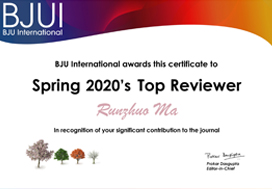
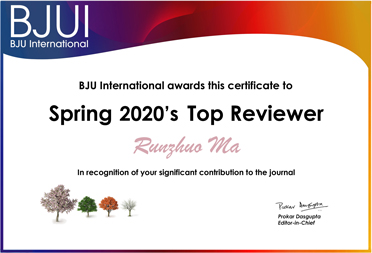

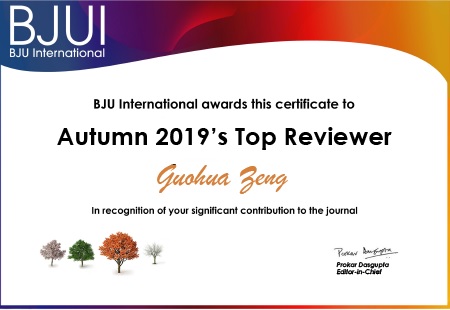


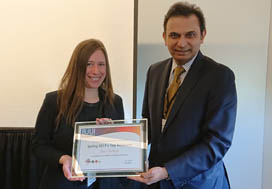
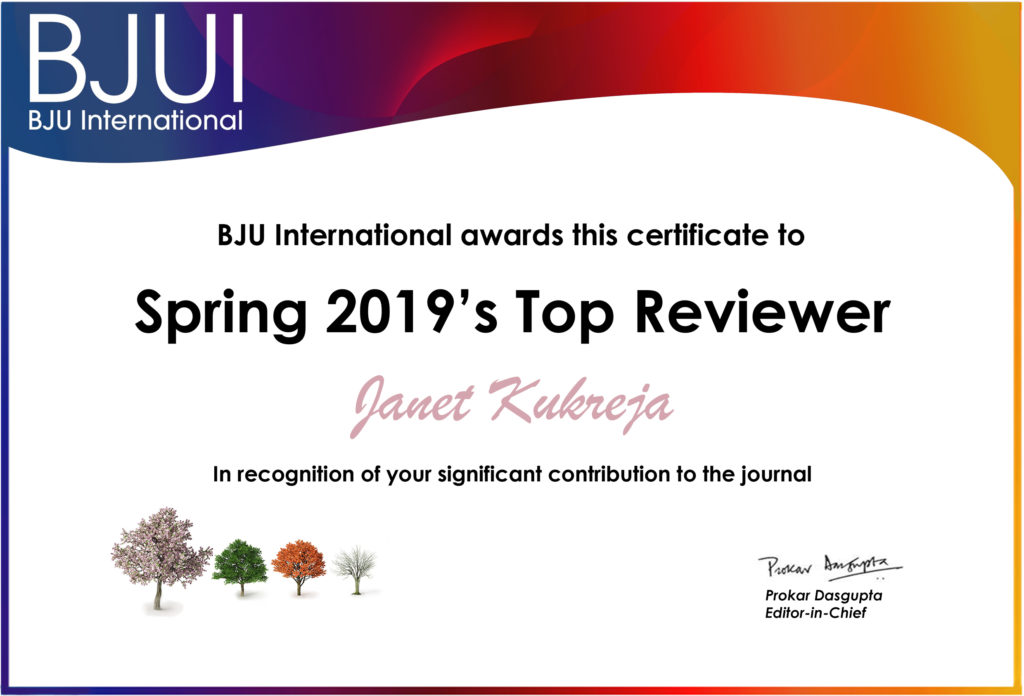
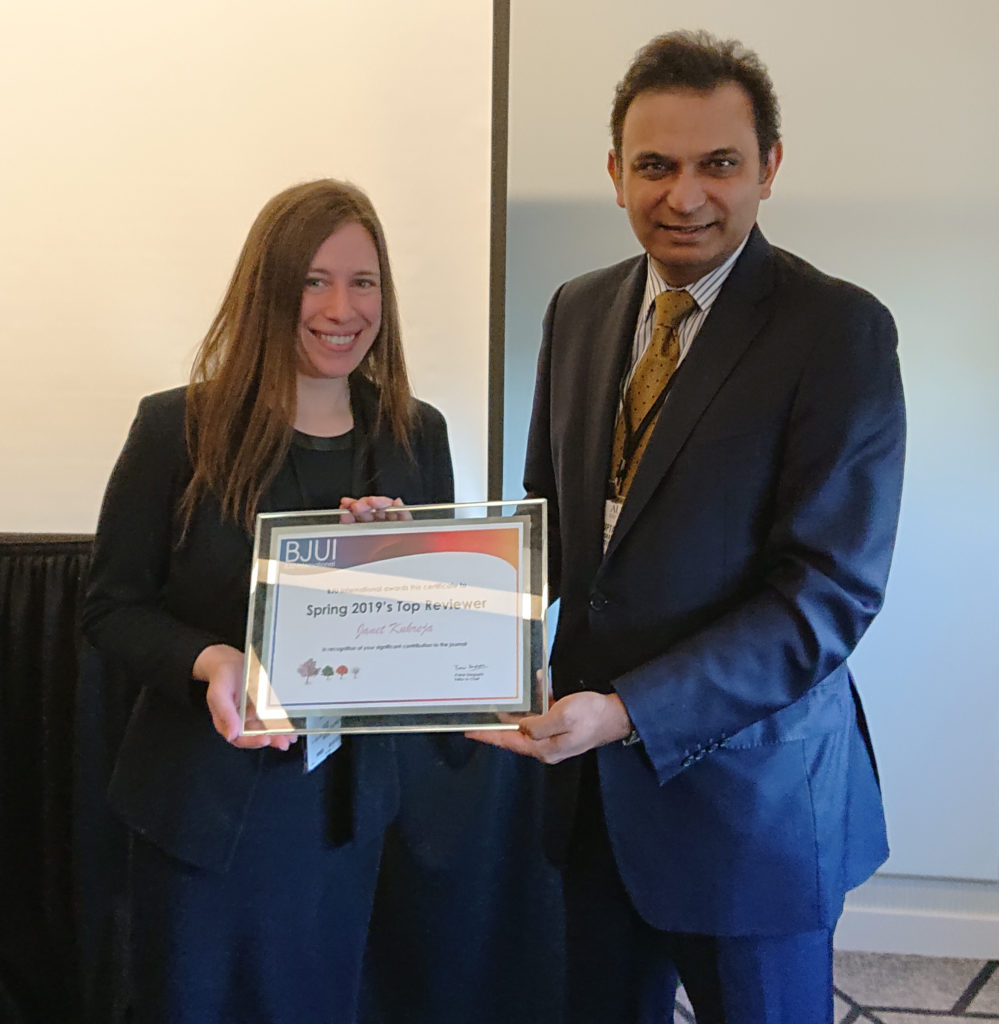
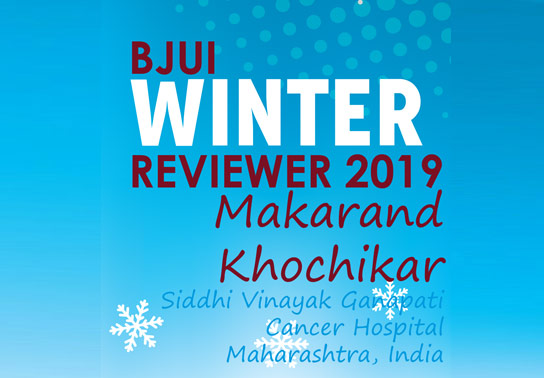
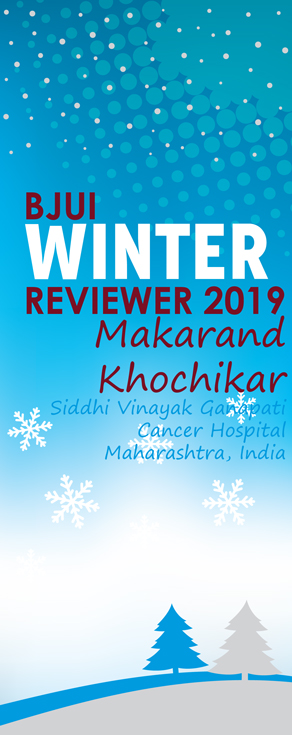
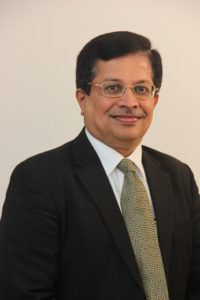

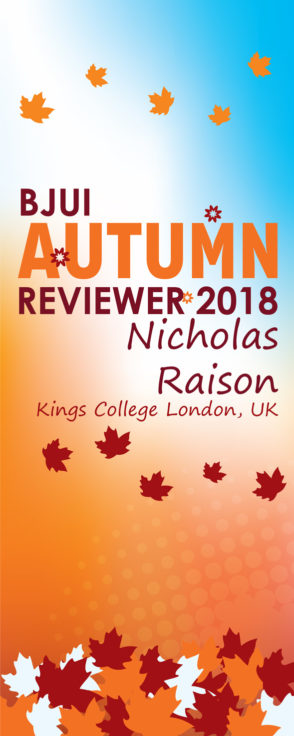


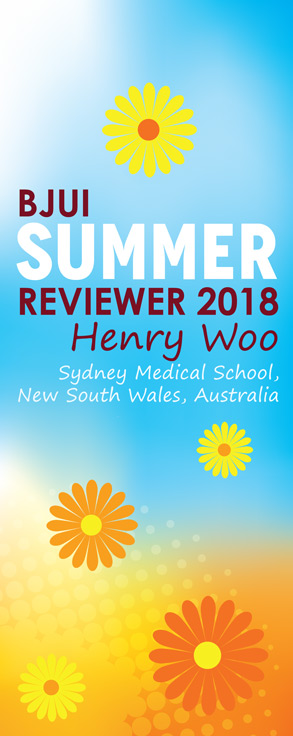 This month, BJUI continues the Four Seasons Peer Reviewer Award recognising the hard work and dedication of our peer reviewers. Each quarter the Editor and Editorial Team will select an individual peer reviewer whose reviews over the last 3 months have stood out for their quality and timeliness.
This month, BJUI continues the Four Seasons Peer Reviewer Award recognising the hard work and dedication of our peer reviewers. Each quarter the Editor and Editorial Team will select an individual peer reviewer whose reviews over the last 3 months have stood out for their quality and timeliness.

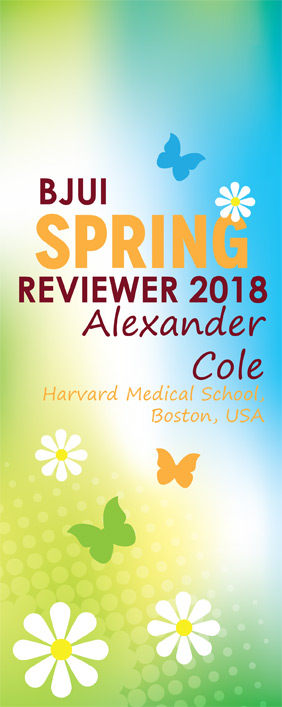 This month, BJUI continues the Four Seasons Peer Reviewer Award recognising the hard work and dedication of our peer reviewers. Each quarter the Editor and Editorial Team will select an individual peer reviewer whose reviews over the last 3 months have stood out for their quality and timeliness.
This month, BJUI continues the Four Seasons Peer Reviewer Award recognising the hard work and dedication of our peer reviewers. Each quarter the Editor and Editorial Team will select an individual peer reviewer whose reviews over the last 3 months have stood out for their quality and timeliness.
